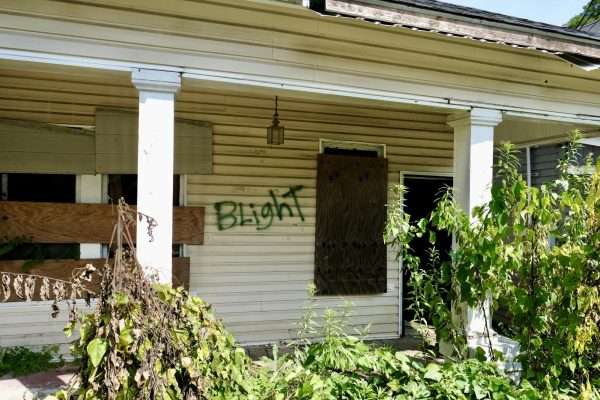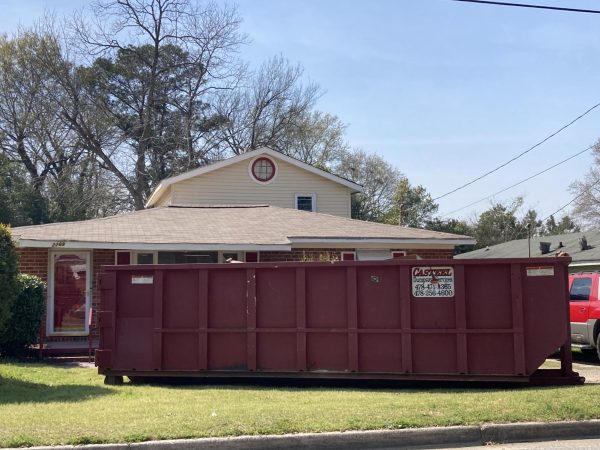From Serving to Homelessness: Resources for Homeless Veterans
Daniel Charles, a veteran navigator at Mission United, explains what exactly they do at Mission United in regards to helping veterans get back on their feet and return to civilian life.
Daniel Charles, a veteran navigator at Mission United, explains what exactly they do at Mission United in regards to helping veterans get back on their feet and return to civilian life.
Eighteen-year-old Freddie Pearson decided to join the military in 1975 to get away from life in Macon. The United States Army offered him an experience of a lifetime serving his country and being exposed to a variety of different cultures.
“[My parents] influenced me to either continue my education after high school or go to the service, not just sit around here on the streets and do nothing,” Pearson said. “I wanted to go, I had a lot of friends who went, we’d all planned it in high school, ‘we’re gonna get away…’ so it was great.”
Pearson spent 44 months in Germany and through his experiences, visited places such as France, Berlin, Switzerland, and Belgium. Pearson said he has rich memories from his time abroad while serving in the military.
“Back then there was a German family, and they would sort of adopt you and you would adopt them. You go spend time with them, learn their ways and they learn your ways,” Pearson said. “There wasn’t no racial divide over there like it was here.”
Before going to the military, Pearson remembers the racial injustice in the American South that played a big part of his upbringing.
“Well you know, it was ’75 when I went in, so a lot of racial stuff still was going on here. But in Germany, it was like different,” Pearson said. “Everybody is a human being there. They didn’t look at me as I was black or you know… it was alright.”
He recalls being a child and not being allowed to go to certain places and eat because of racial division. Pearson saw the military as time away from reality. Time away from the struggles of the South.
After serving, Pearson came back to Macon and stayed with his mother until her passing. The whole time while home, Pearson consistently tried to make his way back into a civilian lifestyle.
“It was kind of hard, I thought about the military. I thought about going back, but I never did,” said Pearson. “The military gave me a place to stay, and now I had to come back and work for it. That was hard.”
Pearson had difficulty with finding work once he was back home, it was this issue that eventually led to him also being homeless.
“It was like, if you’re a veteran and you apply for a job and you don’t have the skills for it, you don’t get the job. I go to school and get the skills for it. I still don’t get the job,” Pearson said. Pearson’s struggle with finding employment and getting back on his feet is what led him to seek out programs to help aid him in his transition back to a normal lifestyle.
Help for Veterans
It’s veterans like Freddie Pearson that need help making the transition back into civilian life.
“We have this thing called United Way Worldwide,” said Daniel Charles, a veteran navigator with Mission United. “We were starting to notice to get the feel or the need to assist veterans. That’s how we came up with Mission United.”
Charles works at the Macon branch of Mission United where he works as a veteran navigator. At this exact location, their focus is veteran homelessness. He said Section 8 housing vouchers are very difficult to get. For many people, they are on the voucher waitlist for years.
“We have several programs that help veterans get off the streets. One particularly that I’m very proud about—we have a relationship with Bibb County Housing Authority where if a veteran is homeless or on the verge of being homeless, they can get a Section 8 voucher,” he said.
Mission United offers a variety of other programs to help veterans.
“Another focus is getting our veterans jobs, getting them employment because the transition from the military life to civilian life is very hard,” Charles said. “So we partnered with a lot of people in the community to get our veterans back to work get them back in school, and get jobs…. what I found out is that there’s not a lack of resources for the veterans, but it’s hard to get access to those resources or the veteran don’t know who to call or how to get the resources.”
Charles believes that while it may be difficult for veterans, like Freddie Pearson, to receive these resources, it’s not because they aren’t there—it’s because the access to them isn’t there. He takes pride in knowing that programs like Mission United are around to be a resource to these men and women.
“Knowing that I can make a difference in a veteran’s life. Knowing I have the resources. I have the knowledge and all,” Charles said. “I’m waiting for the phone call to say, ‘hey, I need help.’ And so just knowing that I have a key that can put a smile on someone’s face and take someone off of the streets into a home…that gets me up every day.”
Mission United is located on 277 MLK Jr. Blvd. in Macon, Georgia.














